Regional

MTA - MountainApp wants to inspire people to immerse themselves in landscapes. MTA - MountainApp is a project jointly run by researchers from Switzerland and Georgia. MTA - MountainApp was developed for a transnational research seminar taught at the University of Zurich and the Ivane Javakhishvili Tbilisi State University.
MTA MountainApp


The ClimateWatch program is the collaborative brainchild of Earthwatch Australia, the Bureau of Meteorology and the University of Melbourne to understand how changes in temperature and rainfall are affecting the seasonal behaviour of Australia's plants and animals. The ClimateWatch Citizen Science App enables every Australian to be involved in collecting and recording data that will help shape the country’s scientific response to climate change.
ClimateWatch


Our Outdoors is a citizen science project which aims to find out more about what users experience when they are in public spaces such as parks, beaches, canals, and town squares. It was developed by researchers in the Scottish Collaboration of Public Health Research and Practice (SCPHRP) at the University of Edinburgh in partnership with Sustrans, the MRC and citizens.
Our Outdoors


The Big City Birds Citizen Science App aims to learn about five specific bird species and their behavioral adaptations to living in the city. Their whereabouts, behaviors, communal roosts, and nest sites are of interest to researchers at the Max Planck Institute of Animal Behavior, the National Australian University, and The University of Sydney. The data collected will help scientists understand these species’ behavior, movement, reproduction, distribution, and habitat use in suburban areas.
Big City Birds

Slip of Evidence


"Crows in the zoo" is a Citizen Science project of the Department for Behavioral and Cognitive Biology of the University of Vienna in cooperation with the Konrad Lorenz Research Station and the Zoo Vienna. The researchers aim to find out more about the species and subspecies of crows that use the Zoo area. All visitors of the Zoo Vienna are welcome to join in!
KraMobil


The MAKENYA | Mammal Atlas Kenya is the first Citizen Science App for an African country running on the SPOTTERON Platform. The Citizen Science Project from the Zoology Department of Kenya's National Museums, enables naturalists to report sightings of mammals during their expeditions. Such data is unavailable, but is valuable for conservation and mapping the distribution of Kenyan mammals.
MAKENYA

The Green Growth Wildlife App intends to address Suriname's existing lack of a centralized system for biodiversity information. With the App, users can efficiently map and analyze the status of Suriname's unique wildlife by gathering data through it.
Green Growth Wildlife


With the Green Growth app everyone can contribute to keeping Suriname the greenest country on earth with 93% forest cover. The data will help to manage the forests of South America. This Citizen Science project aims to create an active community of forest watchers and keep Suriname green.
Green Growth Forests


This project gives interested Citizen Scientists, who range from school pupils to amateur collectors and professional scientists, a basis for identifying new fossil findings, publishing these and thereby completing the network of data from the Earth history in Austria.
Fossilfinder


"EBW" stands for "Ergebnisorientierte Bewirtschaftung" ("result-oriented management") and is a highly specialized app for farmers and agriculturists to increase biodiversity in Austrian agricultural and natural landscapes.
EBW - Result-oriented management

In the Roadkill Citizen Science Project from the University of Natural Ressources and Life Sciences in Vienna, Citizen Scientists and researchers collect data about roadkill on streets all around the world. If there`s a high number of roadkill in one spot or a particular species gets killed in the same place a lot, that can help scientists understand how the animals came to die and find solutions for it.
Roadkill

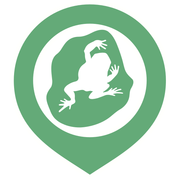
The AmphiBiom project aims to take an important step towards a comprehensive protection concept for the green toad. This involves an Austria-wide inventory and analysis of the habitat preferences of the critically endangered green toad, a typical pioneer species that can quickly colonize newly emerging waters.
AmphiApp


PATIO stands for "Patient Involvement in Oncology" and is a project of the Ludwig Boltzmann Institute Applied Diagnostics, which deals with citizen involvement after the diagnosis of prostate cancer. In the PatioSpots app, users can enter, find & rate WC facilities, as well as treatment, counseling and important contact points in their surrounding area.
PatioSpots

QuakeWatch Austria - an initiative of ZAMG (Central Institute for Meteorology and Geodynamics) - involves broad sections of the population in earthquake research. The objective is to record earthquake perceptions and effects in Austria more quickly and precisely. The collected data of the Citizen Scientists support a better assessment of the hazard of future earthquakes.
QuakeWatch Austria

Soils for Science is a Citizen Science initiative of The University of Queensland, Institute for Molecular Bioscience. Soils for Science aims to inform the public on the importance of antibiotic resistance in modern healthcare, and soil microbes as a source of next-generation antibiotics. Soils for Science provides the public with free sampling kits to collect soil samples rich in microbial biodiversity (bacteria and fungi).
Soils for Science

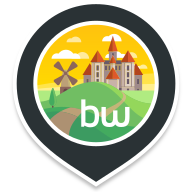
Landauf, LandApp BW is an interactive data collection project by LEO BW and the National Archive of Baden-Würtemberg in Germany, EU. The Citizen Science App is focused on contributions about landmarks and historical buildings in the area. The project is including local communities and gather their knowledge about their own regions.
Landauf, LandApp BW


Nature Park Garden is a project of the Federation for the Environment and Nature Conservation Germany (Bund für Umwelt und Naturschutz Deutschland e.V. (BUND)).
Gardening is experiencing a renaissance. By avoiding pesticides and peat and using natural cycles in cultivation, biodiversity is promoted. Gardens offer enormous potential for the protection of biodiversity, and this Citizen Science project is here to help.
Nature Park Garden | BUND


Cane toads are relentless invaders. Native to Central America, cane toads were transported to sugar cane growing regions of the world early last century, including Australia, in the hope they would eat and eradicate beetles devastating sugar cane crops. The experiment failed spectacularly. Toads ignored beetles, and instead embarked on an epic global invasion.
Cane Toad Challenge


Nature's Calender Burgenland is the next regional project of the Nature's Calender app family. The Citizen Science app can be used locally for phenology observations in nature and offers all community functions and features for species classfication. By the local character of the Citizen Science app especially schools and educational institutions in the region can participate in an optimal way.
Nature's Calender Burgenland

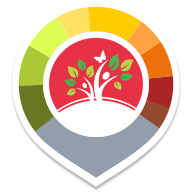
Nature's Calendar Upper Austria is a regional Nature's Calendar project, which also collects data for the Central Institution for Meteorology and Geodynamics (ZAMG). The data collected can be observed in nature and compared over years, so it's observations like plants starting to blossom, trees yielding fruit or throwing off leaves or animals being active that support scientific research in this project.
Nature's Calendar Upper Austria


In collaboration with the Institue for Transport at the University of Life Sciences, Vienna, this Citizen Science App was specially made for kids and teenagers. The Community Science project aspires to understand better how they perceive and rate possible dangers and their surroundings in general.
Was Geht Ab?


"Forschen im Almtal" is the app for a Citizen Science project of the University of Vienna in collaboration with the wildlife park in Grünau in Austria's Almtal. Visitors of the Wildlife park can become Citizen Scientists and observe three bird species (grey goose, raven and northern bald ibis) and help collect data on their behaviour in the Citizen Science App 'Forschen im Almtal'.
Forschen im Almtal


WaldrApp is a Citizen Science project from the University of Vienna aiming to collect ecological information on the whereabouts of "Waldrapps" (English: northern bald ibis). Since these birds are an endangered species, the data collected through the app can help gain essential data for future settling projects.
WaldrApp

Using the WATERLINX APP will open up new insights into intricate interactions between different species of animals and plants and their environment by exploring the relations between water quality, species compositions in ecosystems, and human actions.
WaterLinx | Citizen Science

PartiCollect is a project by NanoObs and PartiCiTaE that invites Citizen Scientists to take part in mapping fine-particle air pollution in the city by collecting tree bark samples, which are then analyzed for metallic pollutants that are largely linked to car traffic and are known to negatively impact human and plant health.
PartiCollect | Citizen Science

P51 is a project by La Ruta del Clima with the objective to gather knowledge from communities about the effects of climate change on different issues such as infrastructure, territorial changes, human rights, loss of species and territority etc.
P51 | Citizen Science






